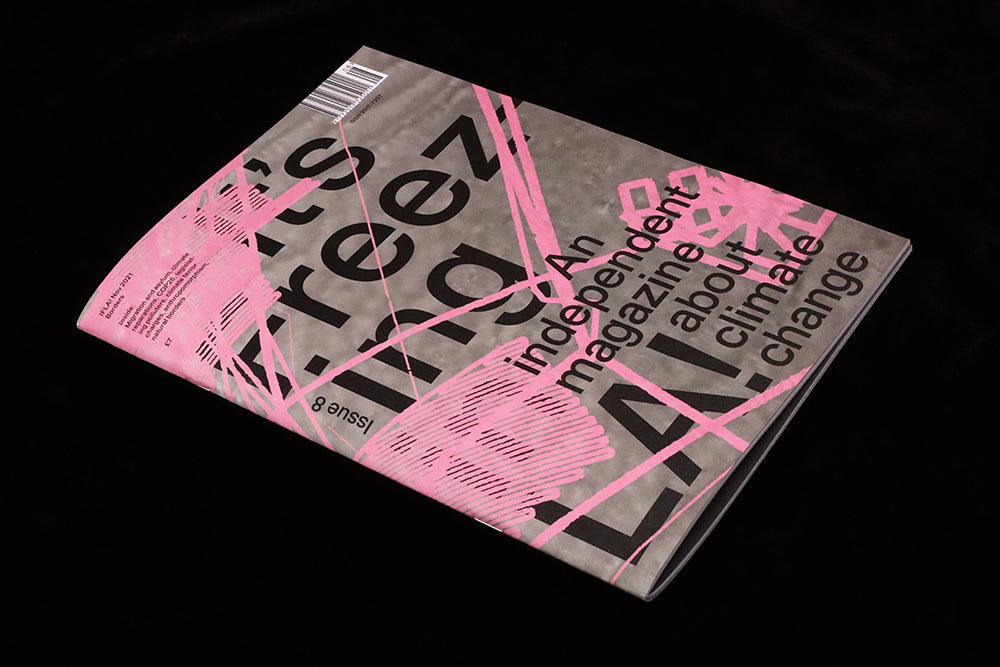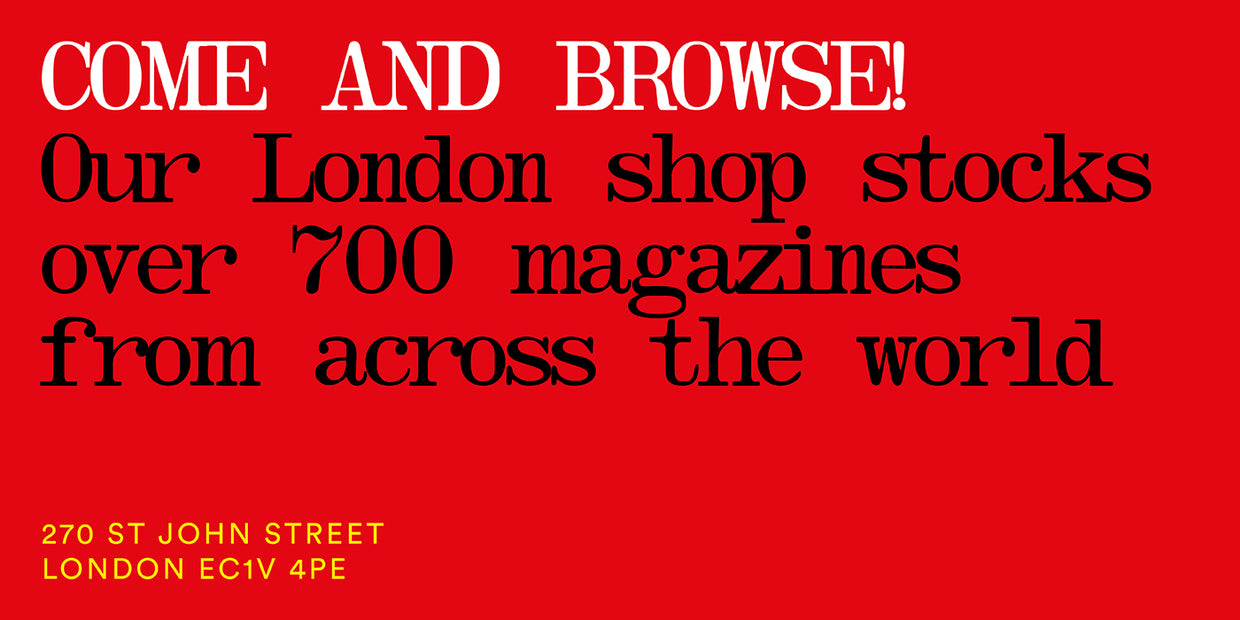
It’s Freezing in LA! #8
As COP26 continues, we speak to It’s Freezing in LA! editor Martha Dillon about their latest issue, the Climate Change Conference and what we can do
How are things at IFLA! HQ right now?
A mixture of cheer and nerves. Our new issue is out but as things gear up at COP26 there’s a lot of tension in the air…
Tell us a little about the latest issue.
This issue is about borders so we’ve been thinking a lot about national frontiers but also ecological ones. We were looking for information about the seafloor and were shocked to discover how much of the available data is tied to oil and gas exploration—and worse—that there are companies who’ve mapped parts of the sea floor and won't share that information. Knowledge of our own planet is intertwined with profits and extractivism. Oil and gas companies are withholding information about critical planetary ecosystems hostage.

And the issue’s cover design reflects this?
On the cover, the grey is the fuzzy seabed mapping you can do using satellite data. The pink is where more detailed studies of the seafloor have been carried out but only for areas where the data is publicly available. It’s a tiny area, only partially complete, and it’s concentrated in areas of extraction, industrial fishing and shipping.

Which feature in the issue are you most excited by?
It’s impossible to choose! We’ve been so galvanised by Rudy Wickremasinghe Schulkind’s piece setting out, in no uncertain terms, the hostile approaches taken by the UK and other western nations to climate migration, and by Sahar Shah’s writing on reparations as a channel for colonial states to take responsibility for climate crisis.

We’ve also loved some of the pieces that have explored the idea of borders and ecosystems––Anna Souter has written for us about borders as sanctuary, finding some incredible examples of areas that have regrown after humans have been kept away (like the Demilitarised Zone between North and South Korea).
How are you feeling as COP26 takes place in Glasgow?
One side of COP is that it is a rallying point for commitments to action—from both governments and businesses. The other side is the actual technical negotiations to agree the ‘final’ terms of the Paris Agreement (the 2015 international treaty that commits to limiting global warming). These negotiations have been going on for a long time and are quite detailed.
For example, concerning technicalities about carbon markets, and negotiating financing arrangements from the Global North to South. What COP isn't doing is questioning whether all these commitments are good enough, or whether the technical negotiations are about concepts that make sense. This is what we’ve been interested in in the new issue.
Can you expand on that?
For example, what would a true system of reparations between the Global North and South look like? Or, why are countries only making commitments about some of their emissions?
So, COP26 is generating energy and interest, and may well birth some ambition. But it’s not about to radically change the global approach to climate action. Climate action and effort has to happen every day, not just around these infrequent, much-hyped events.
Are you able to hold onto a feeling of hope?
Things are changing very fast. Feeling like profound change might genuinely be about to happen, and having the privilege of being in a community of people working on climate action definitely creates hope. But watching climate action done ineffectually, or without inclusivity and social justice front and centre, is deeply distressing.
This is about the survival of vast swathes of the planet and half-baked commitments that don't recognise that we need to totally reorganise how we live won’t cut it.
What’s at the top of the IFLA! to-do list now the new issue is out?
Where to start! We have some events in the pipeline this month—workshops with the UAL Carnival of Crisis and our own issue launch party—and we’re working on an exciting announcement for the new year.
Going forward, one of our priorities is going to be picking through the pieces of COP. What happened, what worked, what didn’t?

Finally, what’s an easy way someone reading this can get involved in climate action?
Join a local group calling for change. There’s a danger that the momentum around COP is going to fizzle out—don’t let that happen. 100 companies are responsible for 71% of emissions, and 15% of people take 70% of flights. This imbalance still isn't recognised in national and corporate action, so pressure groups have to keep stressing that point. If you work for a big company––is it creating unnecessary products, what materials does it use, who does its actions affect?
And while corporate and state action is key, we are going to need to accept changes to our lives. Companies, building owners and councils have to insulate spaces, swap out gas boilers, install electric vehicle chargers, plant in unused space and divest investments and pensions. No bones about it—the next few decades are going to mean real changes to the spaces and systems around us.
Editor: Martha Dillon
Creative directors: Nina Carter and Matthew Lewis
itsfreezinginla.co.uk
@wordsbydanielle


